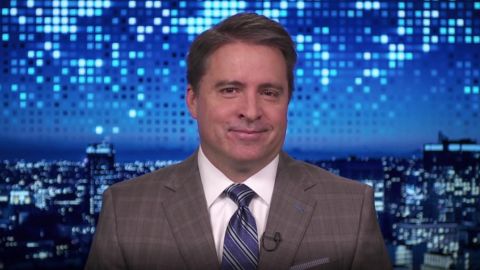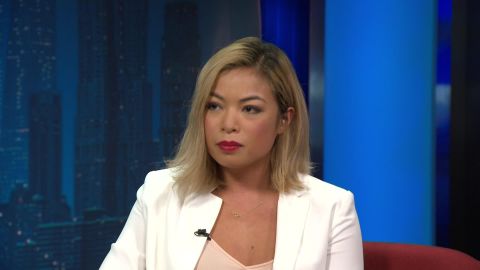Read Transcript EXPAND
CHRISTIANE AMANPOUR: You say, “While Democrats have the long-term demographic wins in their back, Republicans have a time machine, a consistent skew in ethnic and religious voter turnout patterns that in national elections has the effect of turning back the demographic clock eight or more years.” What exactly does that mean when it comes to the results at the elections?
ROBERT P. JONES, CEO, PUBLIC RELIGION RESEARCH INSTITUTE: Right. So, you know, one of the dynamics in the U.S. is that white Christian voters turn out to vote at higher rates than other Americans do. And so, one of the kind of ironies of our current situation is that we are in a place where the country is changing quite dramatically and part of that change is a decline in the percentages of white Christians and the country. So, for example, we go back just a decade ago, the country was comfortably a majority white and Christian, 54 percent of the country identified as white and Christian. But today, our latest numbers show that number has dropped down to 41 percent. However, that’s on the general population. But at the ballot box, things look quite different because that group, even though it’s declining, turns out to vote at higher rates. And when you kind of compare the voting population composition to the current demographic population, it basically looks like a time machine that takes you back about two presidential election cycles, about eight years.
AMANPOUR: What you’re saying is that even though what was a majority, white Christian, and evangelical population, even though that has fallen, that percentage, they are overrepresented at the ballot box. The question is why?
JONES: Now, part of that is because of a history of higher voting rates, for example, among white evangelical voters, which are Trump’s dedicated base. So, they voted for Trump at 81 percent, according to the exit polls, they make about a quarter of the electorate. So, it’s a combination of both over performance among white evangelical voters, for example, that are overwhelmingly Republican and also voter suppression and lower turnout rates among minority voters in the country.
AMANPOUR: Which are overwhelmingly Democratic?
JONES: That’s right. So, it gives Republicans basically this edge in election, in national elections, in particular, that they don’t actually have in the demographics in the country right now.
About This Episode EXPAND
Robert P. Jones and Christiane Amanpour speak about the role of white evangelical voters in the 2020 election. Joseph Cedar and Tawfik Abu-Wael join the program to discuss the film “Our Boys.” Jia Tolentino sits down with Alicia Menendez to explain why the internet is “an engine of self-delusion.”
LEARN MORE


